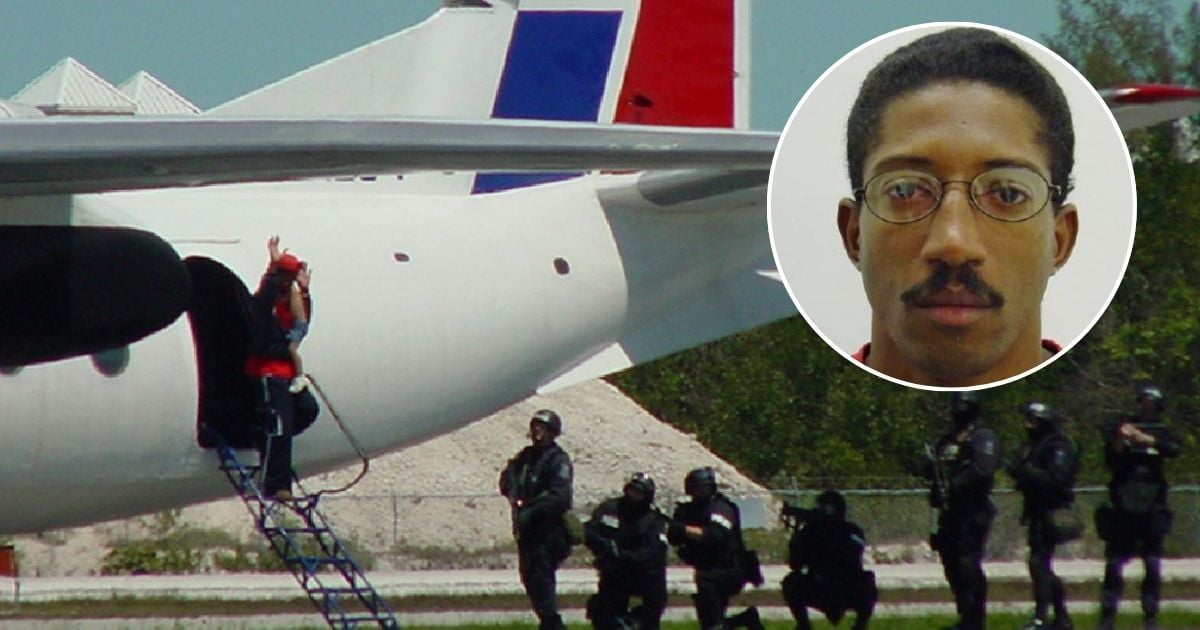Adermis Wilson González, a Cuban national who served almost 20 years in a U.S. prison for hijacking a plane from the Isla de la Juventud in 2003, has been detained by the U.S. Immigration and Customs Enforcement (ICE)
Yolaine shared with the news outlet that she spoke with her brother shortly after his arrest, during his processing by an ICE officer. Wilson reportedly surrendered peacefully during what was described as a significant operation to capture him. He explained his situation to the officer, emphasizing why returning to Cuba was not an option for him. According to Yolaine Wilson, who spoke with journalist Wilfredo Cancio Isla, during a video call with her brother, she overheard the officer discussing the possibility of sending him to Mexico. Just recently, ICE deported a dozen Cubans to Mexico who had been ordered for deportation. "We are desperate and confused about what is happening. Adermis cannot return to Cuba, and U.S. authorities are well aware of this," she expressed. Since his arrest, the family has lost contact with Wilson, who is believed to be held at a detention center in Montgomery, Texas. Wilson was involved in a dramatic hijacking of a Cubana de Aviación commercial flight on its route from Nueva Gerona to Havana on March 31, 2003. He surrendered to U.S. authorities in Key West, Florida on April 1. Back in March 2003, Adermis Wilson, who was then working as a civil construction technician in the Isla de la Juventud, commandeered a commercial flight bound for Cuba’s capital. Armed with two grenades, he directed the pilot of an Antonov-24, carrying 46 passengers, to head for Miami. Due to insufficient fuel, the plane was forced to make an emergency landing at Havana's José Martí International Airport. While refueling, Wilson engaged in a tense 14-hour negotiation involving Cuban leader Fidel Castro and James Cason, then head of the U.S. Interests Section. The talks resulted in the release of 22 hostages, including women and children, before the plane departed for Florida. During the 50-minute flight to Key West, the Antonov-24 was escorted by two U.S. Air Force F-15 fighter jets and a Black Hawk helicopter. Upon landing in the U.S., Wilson surrendered with his hands raised. It later emerged that the grenades he brandished were fake, crafted with the help of a local ceramist, although real grenades were found at his residence. His actions involved his then-wife and her three-year-old son. Wilson's detention, potentially leading to his expulsion from the U.S., occurs amid heightened immigration enforcement under President Donald Trump's administration, characterized by ongoing raids, arrests, and deportations of undocumented immigrants, especially those with criminal records. Last week, the U.S. Supreme Court backed Trump's immigration policies by allowing deportations to countries other than the migrants' native ones, reversing a previous court order requiring the government to offer migrants a “meaningful opportunity” to explain the dangers of deportation to a third country. Wilson is facing deportation as part of ICE's enforcement actions against individuals with criminal records, even after they've completed their sentences. His case is complicated by concerns over his health and the risks of returning to Cuba. In 2003, Wilson hijacked a commercial flight in Cuba using fake grenades, demanding it fly to Miami. The plane made an emergency landing in Havana due to low fuel. After negotiations, the plane continued to Florida, where Wilson surrendered to U.S. authorities. Under Trump, there's been a significant increase in deportations and stricter enforcement measures focused on undocumented immigrants with criminal records. The Supreme Court has also supported policies allowing deportations to third countries.Concerns Over Deportation
The 2003 Hijacking Incident
Political Climate and Legal Implications
Key Questions on Adermis Wilson's Case and U.S. Immigration Policy
Why is Adermis Wilson facing deportation after serving his prison sentence?
What were the circumstances of Wilson's 2003 hijacking?
How has U.S. immigration policy changed under the Trump administration?
Cuban Hijacker Held by ICE After Nearly Two Decades in U.S. Custody
Tuesday, July 1, 2025 by Felix Ortiz
